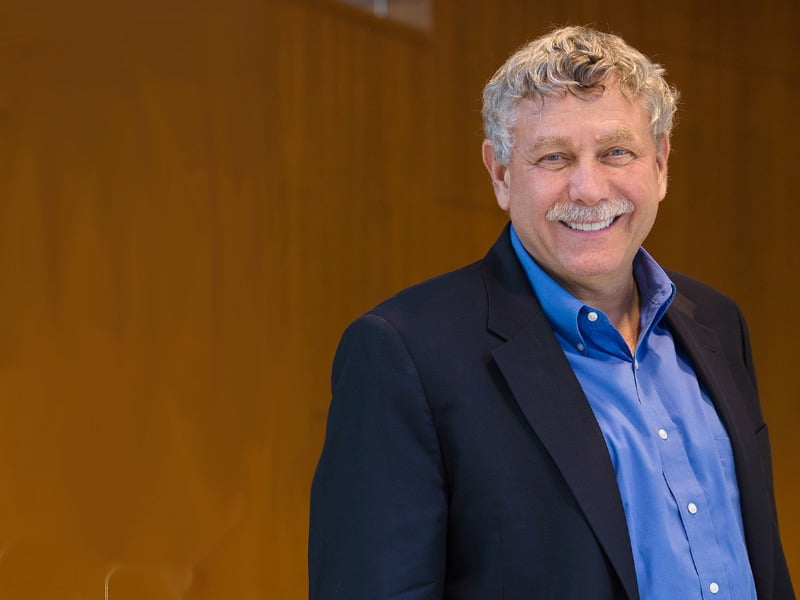Industry, Science and Technology Minister Karen Andrews has welcomed president-elect Joe Biden’s plan to elevate the role of the chief science advisor into a Cabinet-level position for the first time.
Mr Biden appointed the Broad Institute of MIT and Harvard’s founding director Eric Lander – a mathematician and geneticist – to lead the Office and Science and Technology Policy, and made him a member of the first Biden Cabinet.
The elevation of science advisory into Cabinet brings it in line with the structure we have in Australia (the last time the science portfolio has drifted outside of cabinet in this country was briefly in the third ministry of the Howard Government 20 years ago, before it was returned to Cabinet in Howard’s fourth ministry, where it has been ever since.)

In a letter to Dr Lander, the Mr Biden directed the OSTP to investigate five key questions, each aimed to direct how to “refresh and reinvigorate” US science and technology policy, effectively putting it at the heart of US industrial policy.
The historical echoes within Biden’s instructions are profound, invoking a similar set of marching orders written by Franklin Roosevelt at the tail-end of WWII. FDR had directed his science advisor to come up with strategic tech policies could be applied to the building the nation’s health, economic prosperity and national security.
This process led to the creation of the National Science Foundation in the US, and the decades of science-based industrial benefit that followed.
You can read Joe Biden’s letter to Dr Lander here and Franklin Roosevelt’s letter Dr Vannevar Bush here. Both are fascinating, as both are written at a time of crisis; the coronavirus pandemic and WWII respectively. The aim of each is redirect the scientific and technological energy developed in the crisis toward policies that embed this prowess into the broader national economy.
The placement of the science at the centre of US industrial policy and into the Cabinet has a potential flow-on benefit for US partners.
“The United States is one of our strongest and most important strategic allies and I welcome the plan to elevate the director of the Office of Science and Technology Policy into cabinet,” Minister Andrews told InnovationAus. “This will mirror the situation here in Australia.”
“The Australian Government is committed to supporting science and technology, and the importance of the sector has never been more obvious than during our response to the global COVID-19 pandemic,” she said.
“Science and technology will also be key to our ongoing economic recovery, as a key enabler of industry and at the heart of our Modern Manufacturing Strategy. I look forward to further deepening Australia-US collaboration on science and technology.”
The chair of the University of Technology Sydney’s Innovation Council Roy Green – who authored a seminal report on the National Innovation System in 2015 – says the US’ investment in research and innovation presents opportunities for Australia if we can similarly realign industrial policy.
“The appointment of Eric Lander as a Cabinet level science adviser is a clear signal of the incoming Biden administration’s commitment not only to restoring US scientific and technological pre-eminence but also to embedding it in a comprehensive new industrial strategy,” Prof Green told InnovationAus.
“If there is any continuity with President Trump, it is in the recognition that a more interventionist approach is required, particularly in the face of climate change, a global pandemic and the loss of US international competitiveness,” he said.
“The key difference will be in pursuing this approach through productivity-enhancing investment in research and innovation, rather than tariff protection, investment barriers and an immigration clampdown, which have all rebounded disastrously.
“As a result, there will be major opportunities in Australia for research collaboration, but only if we, like the US, also take steps to establish a new, more effective policy framework for translating research into value adding economic, social and environmental outcomes,” Prof Green said.
CSIRO chief executive Larry Marshall says the national science agency is both aligned and focused on many of the challenges and opportunities that Mr Biden set out in his letter to his new chief of his Office of Science and Technology Policy.
“Science has always been at the forefront of solving the world’s greatest challenges; it’s why CSIRO was formed 100 years ago and why today, we are still focused on many of the challenges and opportunities President Elect Biden has presented to Dr Eric Lander.”
“CSIRO has a long history of working with partners around the world to make life better for all Australians, including working with the United States for more than 60 years across areas as broad as space, energy, environment, and robotics, and with partners like NASA and Boeing, to name just a few. We look forward to continuing to grow these opportunities and partnerships to deliver more solutions from science for the world.”
Meanwhile, the Biden- Harris transition team has also announced more than US$10 billion in additional funds toward the government information technology and cybersecurity infrastructure as a part of incoming government’s US$1.9 trillion COVID-19 economic recovery package.
Mr Biden is seeking expedited congressional approval for an additional $10 billion “to launch the most ambitious effort ever to modernize and secure federal IT and networks” and to strengthen cybersecurity capabilities in the wake of the high-profile federal breaches in the US.
The plan includes US$9 billion to “expand and improve” the government Technology Improvement Fund, helping to help the US to “launch major new IT and cybersecurity shared services at the Cyber Security and Information Security Agency (CISA) and the General Services Administration.”
It also outlines a $200 million fund to underwrite a surge in hiring hundreds of “cybersecurity technology and engineering experts” across the US government, supporting to the chief information security officer and the US Digital Service.
Do you know more? Contact James Riley via Email.

